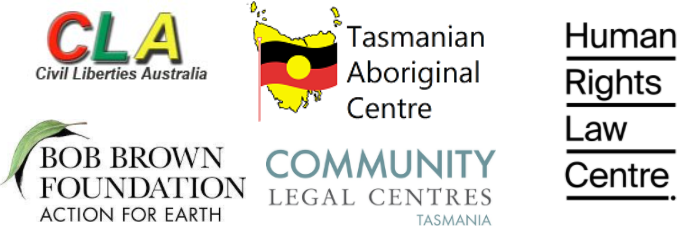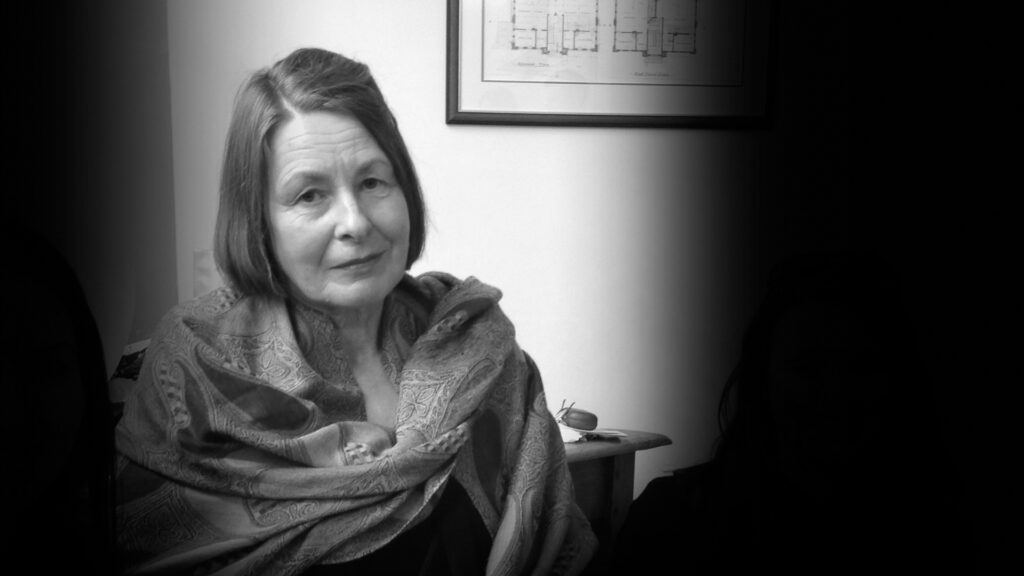Proposed anti-protest laws would trample the democratic rights of all Tasmanians
A coalition of human rights, Aboriginal, social justice and environment organisations have today called on the Tasmanian Parliament to vote against a dangerously broad anti-protest Bill that would undermine Tasmania’s democracy and restrict people’s right to come together and speak out on issues they care about.
The proposed law, due to be voted on in the Legislative Council on Wednesday, creates several broad and poorly defined offences which would criminalise various peaceful advocacy actions on a range of issues.
The Bill would make it a crime to obstruct the use or enjoyment of a ‘public thoroughfare’ with the intent to ‘impede’ a business activity, or to threaten certain protest action that would impede a business activity. If passed, the new law could see people charged for:
-
standing on a footpath and handing out pamphlets about gambling harm;
-
asking people in a public park to sign a petition criticising the treatment of elderly people in a private aged care facility;
-
making Facebook posts or sending tweets which encourage protest action against companies exposed as exploiting workers or sexually harassing women.
A previous version of the same law was struck down by the High Court for being an unlawful restriction on Australians’ freedom of political communication.
Much of the conduct the Gutwein Government says it is targeting through the new Bill is already covered by existing laws. The extraordinary overreach of the new Bill would have a chilling effect on advocacy and protest across all issues and mean the Bill, if passed, will almost certainly end up back in the High Court.
Nala Mansell, Campaign Coordinator, Tasmanian Aboriginal Centre:
“Free speech is free when we agree to hear views of those we oppose, not just those we agree with.”
Daniel Webb, Legal Director, Human Rights Law Centre:
“Whether it’s women’s rights, racial justice, the environment or gambling harm, our ability to come together and speak out on the things we care about is fundamental to our democracy.”
“These proposed laws are dangerously broad and unclear and would almost certainly end up back in the High Court. A law that could see people criminalised for handing out pamphlets on a footpath has no place in a free and democratic society.”
Richard Griggs, Tasmanian Director, Civil Liberties Australia:
“These proposed laws deserve to be defeated in the Legislative Council this week because they would criminalise Tasmanians who peacefully gather on public lands to criticise the actions of a business and to share information with consumers.”
Jane Hutchison, Chair, Community Legal Centres Tasmania:
“We are very concerned that this Bill will have a chilling effect on the community’s right to protest. We strongly believe that the trespass laws already in place are appropriate to deal with unlawful entry onto workplaces.”
Jenny Weber, Campaign Manager, Bob Brown Foundation:
“We call on the Legislative Council to protect one of the most fundamental freedoms in our democracy: the right to peaceful protest. The right to protest is fundamental to a robust and healthy democracy and should be enshrined by our political leaders rather than curtailed. Special places and tourism icons that contribute to the economy, thousands of jobs and the wellbeing of Tasmanians are only there because citizens took part in peaceful protest when they were threatened.”

Media contact:
Michelle Bennett, Engagement Director, 0419 100 519

Legal challenge filed against Tasmanian Parole Board’s decision to gag free speech
The Human Rights Law Centre has filed legal proceedings on behalf of Tasmanian grandmother, Susan Neill-Fraser, to challenge a restrictive parole condition placed on her by the Tasmanian Parole Board seeking to limit her ability to speak to the media.
Read more
University of Melbourne urged to drop repressive anti-protest and surveillance policies
The University of Melbourne is being urged to abandon policy changes that restrict staff and students’ right to protest and permit the widespread surveillance of people using their wifi network.
Read more
Expanded protections for marginalised groups welcomed in Allan Government’s anti-vilification laws
The Human Rights Law Centre welcomes the additional protections for marginalised groups in anti-vilification laws passed today by the Allan Government. These laws expand protections from vilification to include people from LGBTIQA+ and disability communities, and provide communities with important civil law avenues to address vilification.
Read more


